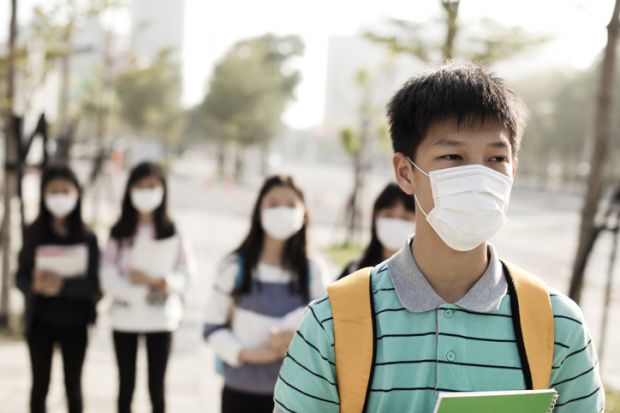More than 10 million high school seniors across China have headed to in-person testing centres for the gao kao, the country’s notoriously gruelling college entrance exam, amid continuing concerns about Covid-19 and mounting criticism of a system that revolves around a single assessment that has historically favoured the privileged.
From 7 July they will take a test to determine their university chances, and essentially their futures. The exam was postponed from its original date in June over concerns about disease control and, while China has minimised Covid-19 infections in most areas, it was still unclear until recently how the test would proceed in Wuhan, the virus’s original epicentre, and in Beijing, which was hit with a second wave of infections in June.
Now it is full steam ahead, even in those areas. State media is filled with stories of officials, medics and volunteers mobilising to transport students safely to testing sites. Wuhan taxi drivers were giving needy youngsters free lifts, while a special “gao kao train” was bringing in rural students.
The situation was particularly tense for the almost 50,000 candidates in Beijing, which is still recovering from a recent virus cluster at a food wholesale market.
“It’s a big challenge,” the state council website cited a government spokesman as saying. “Parents and schools should pay more attention to students’ mental health now, since they have been through a lot in the first half of this year.”
In the capital, rooms have been disinfected, drills have been held, and staff have received nucleic acid tests. Students have been masked, placed in rooms with no more than 20 test takers, and overseen by proctors in protective suits and goggles. Despite the summer heat, they will not have central air conditioning, due to fears that ventilation systems might spread infection.
Yin Hong-biao, a professor in the department of curriculum and instruction at the Chinese University of Hong Kong, told Times Higher Education that the emphasis this year would be on “safety first”.
“Considering that this year’s gao kao is happening during such an extraordinary time, I understand why mainland China, especially Beijing, has taken extraordinary safety measures for this exam,” Professor Yin said, adding that similar measures were taken for the Hong Kong Diploma of Secondary Education in May. “If other countries want to hold these kinds of exams, I think they have to face similar challenges.”
The gao kao was also going ahead in the face of rising criticism about its fairness.
In June, there was public backlash against a singer and provincial official’s son who admitted to sidestepping the admissions system in order to get into a top performing arts school.
After that came a flurry of revelations about exam fraud cases in Shandong province, some dating back years.
In July, the Shandong authorities responded to media allegations that more than 240 students had their gao kao test scores, and chances at university, stolen by imposters in the 2000s. A provincial official said that the cases happened before there was sufficient identification technology, and that procedures would be reviewed in future.
“Considering that a student’s performance in the gao kao is still the most important – or even the only – criterion for judging whether he or she can receive higher education, ensuring that the exam is seen as fair and equitable is a matter of the utmost importance for the Chinese government,” Professor Yin said. “This is why the government has openly addressed concerns about the deceit cases reported recently.”







